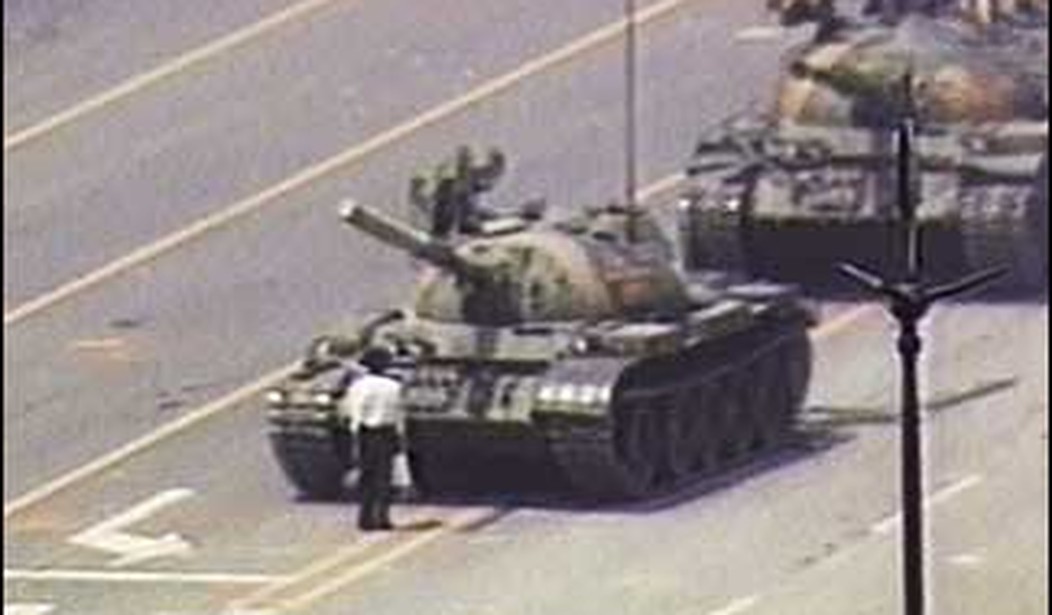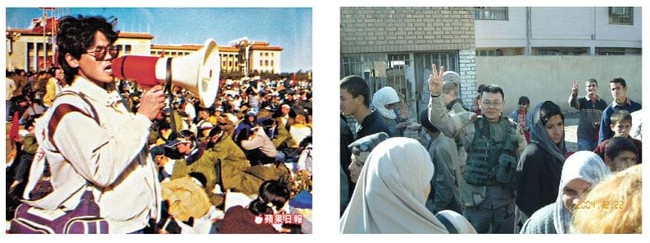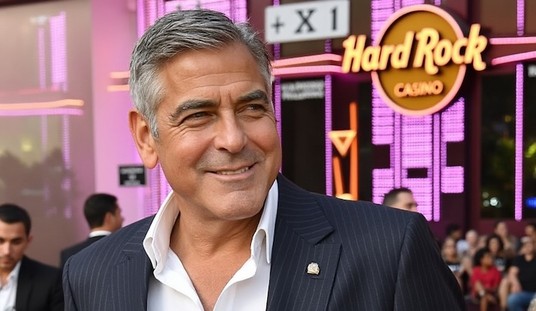WASHINGTON — Leaders of the Tiananmen Square protest movement 25 years ago told members of Congress today they were crushed that America didn’t step in to help back then, but they’re more troubled about what the U.S. government isn’t doing as human rights abuses in China increase to a rate not seen since that era.
No Democrats showed up on the dais for the House Foreign Affairs Subcommittee on Africa, Global Health, Global Human Rights, and International Organizations hearing, at which Chairman Chris Smith (R-N.J.) raised a range of concerns including persecution of anyone who tries to mark the massacre in China, the “mass extermination of girls” through the one-child policy, and unabated forced abortions.
Beijing, he noted, has gone to “astounding lengths to erase the memory of the Tiananmen demonstration.”
“We still have no account by the government of those who died, those who disappeared, those who were arrested, those who were executed,” Smith said. “China lost an idealistic generation of future leaders.”
The Tiananmen protest leaders, including the quintet sitting at the witness table, are among “the best and the greatest and the most courageous the world has ever seen.”
But China is in the midst of a “severe crackdown,” the congressman noted, with 2013 being the worst year since the 1990s in terms of the arrest of dissidents.
“It remains the torture capital of the world,” Smith said.
Rep. Randy Weber (R-Texas) declared that the communist regime “must not be allowed to last.”
“The spirit of courage and freedom will outlast steel tanks and cowardice,” he said in reference to the People’s Liberation Army tanks that mowed down student demonstrators in the square.
Rep. Dana Rohrabacher (R-Calif.), once a speechwriter for President Reagan, maintained that “had he been president of the United States when this happened, this would be a different world and China would be a different place.”
Rohrabacher called it a “disgrace” that the administration of George H.W. Bush “did not make the leadership of the Communist Party pay.”
“Today there would not only be democracy in China but the world would be a safer, more peaceful place,” he said.
Major Yan Xiong was dubbed one of the “most wanted” student leaders after the Tiananmen protests. He recalled rushing toward the square after hearing that troops had marched into the Forbidden City; he ran into walls of people forming human chains, trying to keep their countrymen away from the slaughter. Xiong got through and witnessed “horrific” scenes.
“Soldiers with helmets and AK-47s were randomly shooting at protesters as they chanted slogans and tried to hold their ground. My friend and I crept forward, the sound of bullets, shooting, crying, and tanks blended together,” he told the committee.
Xiong found a phone booth, called his wife and asked her to go to the Beijing University radio station to “tell the truth” about the massacre unfolding. “I continued to relay new information to the radio station until the early hours of morning.”
He was captured after ending up on the most-wanted list and spent nearly two years in prison before coming to the U.S. in 1992 — just in time for his first Fourth of July.
“I saw then the meaning of freedom – the freedom of expression, freedom of religion, and freedom from fear that all Americans enjoy. Since the time of my baptism as a Christian, I also found the freedom that knowing God provides,” Xiong said. “As a commissioned officer in the United States Army I serve to protect these freedoms. As an Army Chaplain my job is to assist my commander to ensure that all members of the Army family receive the religious support they need to freely exercise their faith, according to the Constitution.”
Xiong beamed when he spoke about his love for his adopted country and for the Army. “I’m so proud to be a U.S. citizen, to serve my country 20 years now,” he said, adding that “the real Creator is not the Communist Party; it is the Creator of the people.”
Zhou Fengsuo, co-founder of the rights group Humanitarian China, called it “the greatest honor of my life that Chinese government … designated me as No. 5 on the list.”
“I did not deserve that honor, for there are many others that worked harder and fought more bravely,” he added. Zhou was responsible for building networks that provided medical support to the protesters in the square, and was among the last students to leave.
He saw children as young as 9 shot to death, and dozens of students’ bodies stacked in a bicycle shed at a hospital. As the world watched the brave unknown “Tank Man” halt a column of approaching tanks, Zhou stressed that off camera tanks chased down students and killed many.
“If China remains a dictatorship it could be even more bloody than the 20th century,” he warned.
Yang Jianli, president of Initiatives for China, came to the U.S. after Tiananmen yet spent years in prison in the 2000s after reentering the PRC to help on a labor-rights case. Members of Congress lobbied hard on his behalf before he was allowed to return to America in 2007.
Yang stressed that there were “missed opportunities” to affect change in the China during the 1990s when the regime was weaker and isolated after the Tiananmen massacre.
“What we were lacking at that time was strong enough international support,” he said. “The international community did not realize that Chinese people’s desire for freedom was really strong and there.”
“We have a lot to do together to improve China’s human rights violations,” Yang added.
Chai Ling, who escaped China after landing on the most-wanted students list after Tiananmen, now runs All Girls Allowed, which is dedicated to putting an end to the one-child policy that favors boys.
“We were hoping America would come to help us,” she said. “America never came.”
When she had the opportunity to question a State Department official about why the students were left to be killed by the international community, she was bluntly told “they don’t care.”
“I was heartbroken,” she admitted. Chai stressed that over the past 25 years “China has developed into an economic dictatorship, with no political reform.”
“Our hope is not rooted in any leader or any individual, but in God alone. If it is God’s will to free China, He alone can accomplish it.”
Zhou said America can now help the Chinese people by allocating more funds to technologies that allow circumvention of the Great Firewall of China as “the life of the communist regime depends on controlling the internet and blocking access of Chinese citizens to outside world.”
Visas can also be rejected to human rights violators, including those who killed protesters in 1989, and Zhou urged the U.S. to consider “strategic” reciprocity in issuing journalist visas. “Beijing is rejecting more and more journalist visas to outspoken foreign journalists. No doubt this creates self-censorship for foreign journalists, who need to make a living too,” he said. “At the same time, more and more Chinese state-owned media are setting up shops in the United States to broaden the reach of the totalitarian regime.”
Smith said one of the problems is that the Obama administration isn’t enforcing what’s already on the books, such as a 2000 law he authored to deny visas to those involved in China’s policy of forced abortions.
A check with the Congressional Research Service, the chairman noted, found that fewer than 30 visas have been denied.
“He is the leader of the free world, a Nobel Peace Prize winner,” Smith said of Obama. “…Our president needs to speak boldly and he has not done so.”
The congressman called the White House’s lack of willingness to pencil in time for families of those tortured by the PRC “appalling” and corrected the president’s assessment on China today: “There’s been an ‘evolution’; yeah, there’s been a deterioration.”
“I believe that someday China will be free,” Smith said. “They will honor, they will applaud, and they will celebrate the heroes of Tiananmen Square.”










Join the conversation as a VIP Member